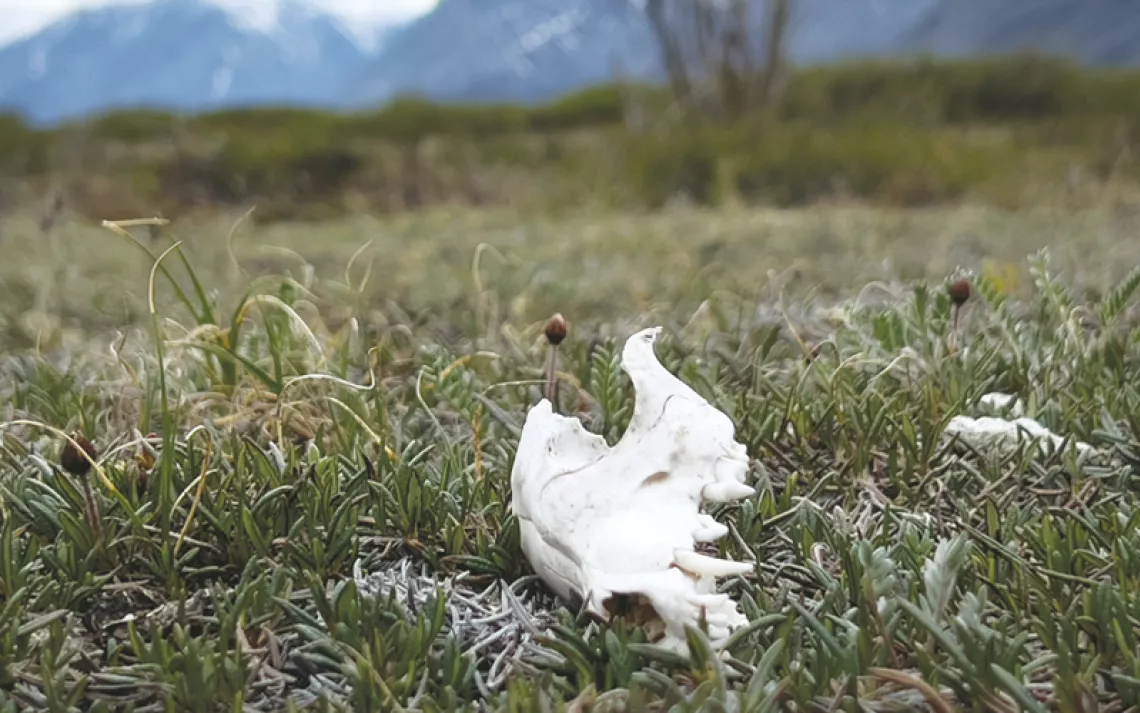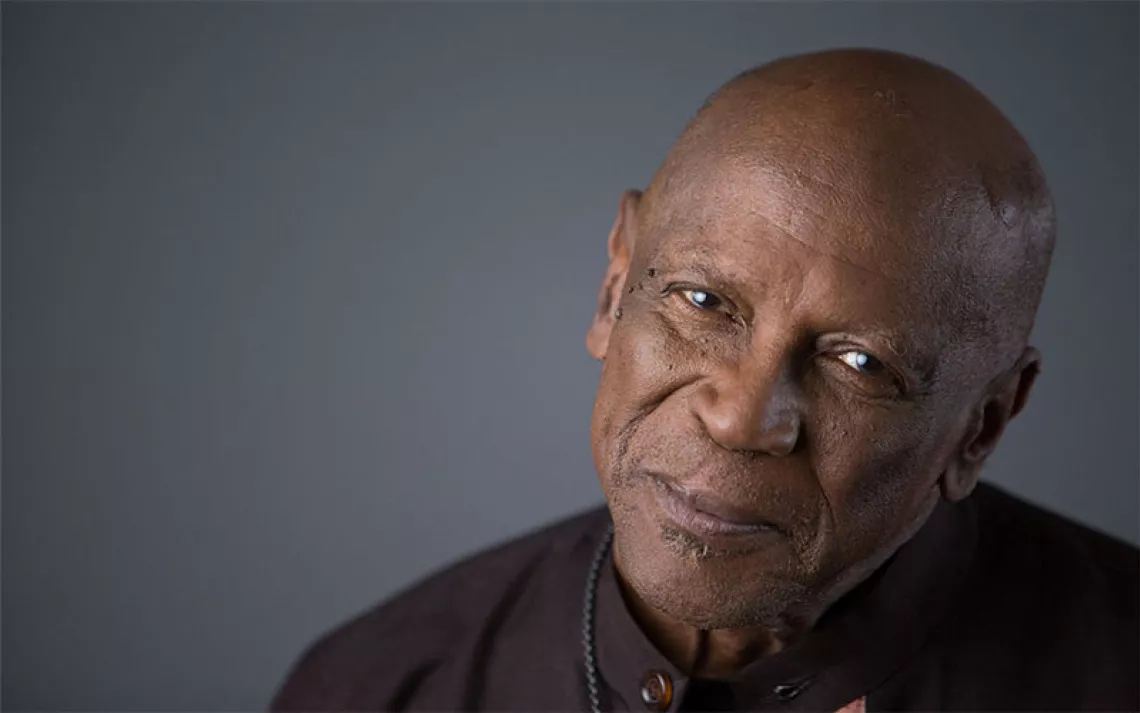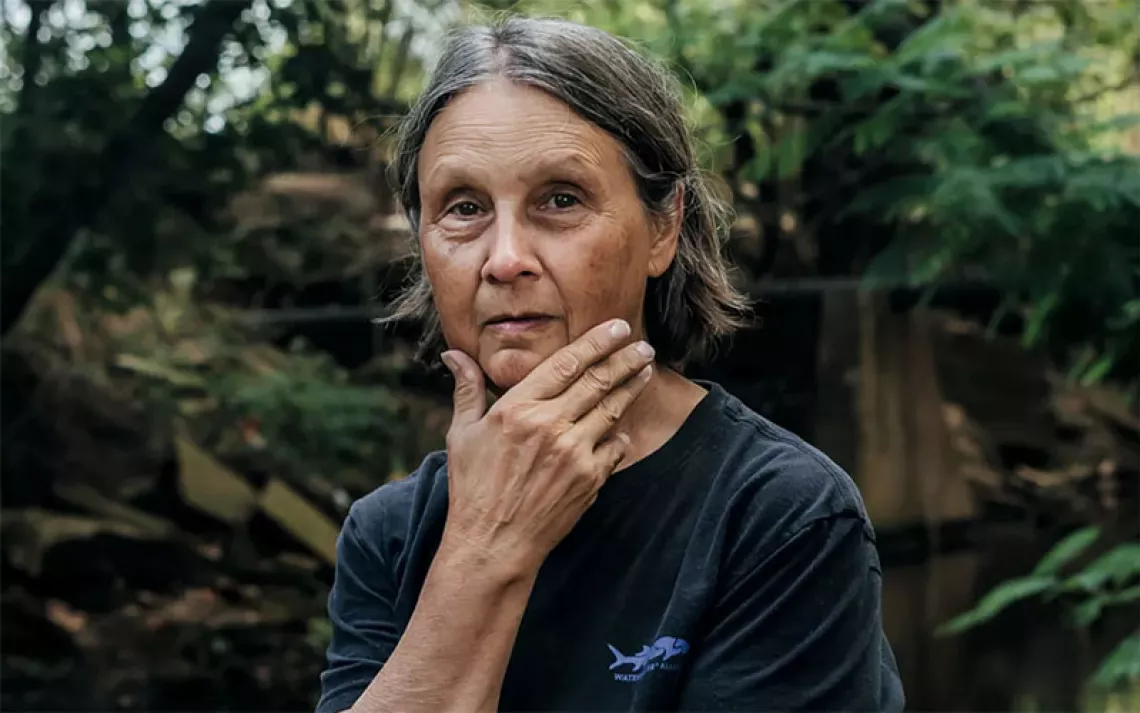Corina Newsome Helps Hatch #BlackBirdersWeek
The social media event highlights—and celebrates—Black people in nature

Corina Newsome wants Black people to be more visible out in nature. | Photo by Katherine Arntzen/Georgia Southern University
Corina Newsome was scrolling through Twitter one morning in May when she saw the viral video of a white woman in New York’s Central Park threatening to call the police on a Black man who had asked her to leash her dog to protect ground-nesting birds. Newsome, a biology graduate student with a focus in ornithology at Georgia Southern University, was angry but not shocked. She knew that this incident was part of a larger pattern of white people weaponizing police against Black people outdoors. So when a fellow member of Black AF in STEM—an online forum of scientists and researchers—proposed launching a social media campaign to highlight Black people who bird, Newsome was eager to take part.
“In 48 hours, we created #BlackBirdersWeek,” Newsome says. From May 31 through June 5, she and her colleagues encouraged Black outdoorspeople to take to social media with the hashtags #BlackBirdersWeek and #BlackinNature in celebration of Black visibility and resilience outdoors. The campaign also sought to open up dialogue about the racialized experiences of Black people in nature.
Black people from all over the world shared photographs of themselves biking, hiking, conducting research, and birding. National outlets such as CNN reported on the social media event, amplifying Black narratives in outdoor spaces and promoting the importance of diversity and inclusion in the field of conservation.
Newsome became interested in wildlife research as a kid in Philadelphia, feverishly consuming National Geographic magazines and wildlife encyclopedias and TV shows. Eventually, she found a mentor in family friend Michelle Jamison, a Black woman and a leading carnivore zookeeper, who encouraged Newsome to apply for an internship at the Philadelphia Zoo.
Birding wasn’t on Newsome’s radar until, as an undergraduate, she took an ornithology class with an infectiously enthusiastic professor. “After that,” she says, “chasing birds became my number one pastime.”
The outdoors is often considered a “neutral” space, devoid of any sort of political or racial influences, but Black birders know better. “In America especially, when you’re Black and in nature, you tend to be the only one or one of two in the same space,” Newsome says. “It can be very isolating.”
Newsome plans to continue working with her Black AF in STEM colleagues to promote diversity and antiracist rhetoric in conservation and support budding Black nature lovers.
“Every time I look outside and see one of these birds who look like they’re just living life like any other day, to know that they just got done flying from the southern tip of South America reminds me that maybe the things I think are impossible are actually achievable,” Newsome says. “My hope is that Black people will see people like themselves doing what I am doing and see the beauty and detail of the natural world.”
This article appeared in the September/October 2020 edition with the headline "Hatching #BlackBirdersWeek."
 The Magazine of The Sierra Club
The Magazine of The Sierra Club



